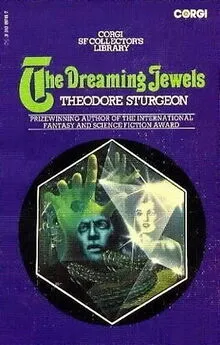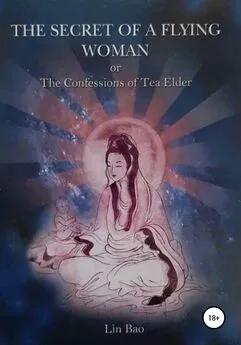Kim ManChoong - The Cloud Dream of the Nine
- Название:The Cloud Dream of the Nine
- Автор:
- Жанр:
- Издательство:неизвестно
- Год:неизвестен
- ISBN:нет данных
- Рейтинг:
- Избранное:Добавить в избранное
-
Отзывы:
-
Ваша оценка:
Kim ManChoong - The Cloud Dream of the Nine краткое содержание
The Cloud Dream of the Nine - читать онлайн бесплатно полную версию (весь текст целиком)
Интервал:
Закладка:
From this time on the two ladies and the six subsidiary wives were all gladness and joy together, like fishes in the stream, or birds that flit among the clouds. They were ever united in heart and ever dependent one on the other like real sisters, while the Master regarded them with love all alike. Though it was due to the goodness of the two ladies that the whole house was so happy, still it was specially due to the fact that the nine had all been once together on Nam-ak Mountain and thus their wishes were fulfilled.
On a certain day the two Princesses said to each other: “In olden days sisters were known to marry into one and the same family, some becoming wives of the first order, and some becoming wives of the second order. Now we two wives and our six attendant sisters love each other more than those born of the same house; and among us are some who have come from distant regions. How could this be otherwise than by the ordinance of God? Our persons and our names differ one from the other; our social conditions, too, were widely separated, and yet here we are to-day with no incongruity to mar our gathering. We are indeed older and younger sisters and love so to be called.”
Thus they spoke to the six sisters, when these, with great earnestness, disclaimed any such possibility, maintaining that they were wholly unworthy, especially Cloudlet, Wildgoose, and Moonlight.
Cheung See said: “Yoo Hyon-tok, Kwan On-jang, and Chang Ik-tok were all courtiers of the king, and yet they preserved to the last the bond of brotherhood. How much more should I be a loved and trusted sister to Cloudlet who was my dear friend in days gone by? The wife of Sokamoni and the wife of their next-door neighbour were worlds apart in social standing, and also in virtue and chastity. Still they each became disciples of the Buddha, and they became one in heart. One rises to the place of illumination and rectitude.”
The two Princesses said to the six:
“Let us go to the Merciful Buddha who sits within the palace chapel and there burn incense and offer prayer.”
They wrote out a solemn oath which read thus: “Such a year, such a day, the disciples Cheung called Blossom, Yi called Orchid, Chin called the Phoenix, Ka called Cloudlet, Kay called Moonlight, Chok called Wildgoose, Sim called Swallow, Pak called White-cap, having bathed and cleansed their hearts, come now with all reverence before the great Buddha of the Southern Sea.
“People of the world oftentimes reckon all within the Four Seas as brothers because they are similar in thought and desire. Even those born by appointment of God as brothers in the same family sometimes view each other as strangers and unknown passers by. This is due to the fact that they fail in love and have no common interest. We, eight disciples, though we have been born at different places, and have been separated wide as the four corners of the earth, now serve one husband, live in one place, and are one in thought and life. Our love is perfect and flows out to each other. If one were to make comparison we are surely like a group of flowers that grew on one twig and fared alike in wind and weather, till at last one fell into the palace, one into a home of the gentry, one on the bank by the way, one was swept into the mountains, one borne down the stream and out to sea, but if we seek the origin it will be found that we are all from one root and finally shall all return at last to one place. So it is with men when born of a similar blood though separated widely by the vicissitudes of time; they all come home to abide together in the end.
“The past has far receded from us. But in it we eight were born at one and the same time, and though we have been separated by this wide expanse of empire yet here we are gathered together and living in the same home. This is truly an affinity that has come down to us from a former existence and explains the joy and gladness of our present life.
“So we eight disciples make a solemn vow and swear an oath of sisterhood to receive together the blessings or the reverses of life; to live together and die together and never, never to part. If among us there be any otherwise minded and forgetful of this oath, may God strike them dead and may the invisible spirits regard them with abhorrence.
“We humbly pray that the great Buddha may give us blessing here and remove from us all sorrow, and help us so that when life is over we may enter the regions of the blessed.”
The two ladies hereafter called the six their younger sisters, but they, out of regard for their humble station, did not call the Princesses older sisters though they truly loved them as such in heart.
They each were blessed with children. The two Princesses, Cloudlet, Moonlight, Swallow and Wildgoose had each a son, while Phoenix and White-cap had each a daughter. Not once did any of them see a little child die in the home, which is an experience that differs from the common world of mortals.
At this time the whole world was at peace, with people dwelling safely and enjoying years of plentiful harvest. Little was there for the Government to do.
When the Emperor went on hunting expeditions the Master accompanied him, and on his return he would retire to his mother and family, where, with music and dancing, he passed happy days. Their joy and gladness accompanied the changing seasons. With years of office, the Master enjoyed great reward and prosperity. But in the providence of God when peace recedes unrest comes in its place, and, when joy has reached its full, sorrow falls.
Unexpectedly the lady Yoo fell ill and died at the advanced age of over ninety. The Master mourned deeply and sorrowed, so that both their Majesties were anxious and sent a eunuch to comfort him and attend his needs. He buried his mother with all the honours of a queen. Justice Cheung and his wife also passed away at a great age, and he mourned for them with no less sorrow than Cheung See herself.
The Master's six sons and two daughters were all blessed with the beauty and comeliness of their parents, like jade-stones and orchid flowers. The eldest son's name was Great Honour, child of Cheung See, and he rose to the office of Minister of Foreign Affairs; the second son's name was Lesser Honour, a son of Wildgoose, and he rose to the rank of Mayor of the Capital; the third was Lightsome Honour, a son of Cloudlet, who became Chief Justice; the fourth was Latest Honour, son of Princess Orchid, who became Minister of War; the fifth was called Fifth Honour, Moonlight's son, who rose to the rank of Chief of the Literati; the sixth was Final Honour, a son of Swallow. At fifteen he was stronger than any grown man, and was like the genii in his wisdom. The Master greatly loved him, and made him generalissimo of the forces. He commanded the forty thousand soldiers who served as guard for the Imperial Palace.
The eldest daughter's name was Tinted Rose, a child of Chin See. She married, later, Prince Wol's son. The second daughter was called Eternal Joy, born of White-cap. She became a second wife of the Prince Imperial.
The Master, who originally was but a common literatus, had met a King who knew his worth and took advantage of his mighty talents. He it was who brought a great war to a glad conclusion, and in merit and renown equalled Kwak Poon-yang.
The Master said: “If we are too prosperous misfortune easily follows, and if our cup of joy be too full a danger exists of running over. I shall now make request to retire from office.” And so he wrote, “I bow a hundred times and make my humble petition to his Majesty. My desire for riches and long life has been realised, and no longer does anything remain to be fulfilled. Parents ask for their children only riches and honour, thinking that if they attain to these nothing is left beyond. Is it not the glory of long life with fame and wealth that the world struggles and contends for? They are indeed the things that the human heart constantly craves. Men do not know the wisdom that says 'Enough,' but desire ever more and more till at last they plunge themselves into the sea of destruction that follows. Though long life and honour have their attractive sides, still they cannot equal a contented mind, or dying peacefully in one's native land. Though these are things we rejoice over, how can they equal a happy home? My abilities were of a mediocre kind and my powers limited, yet I have come to the highest estate possible and have held the most important offices in the land. I have had every honour and glory extended to me. My earliest ambitions did not reach a thousandth part of what has come to pass. Who would have guessed that such lay wrapped away in the future? Notwithstanding my humble station, I became the Imperial son-in-law, superior to all the other courtiers of the Palace; and the gifts of your Majesty have been showered upon me beyond measure. From a child who lived on herbs I have come to dine on the richest fare; and from the lowest origin I have come to be a dweller among kings. I fear that it will prove a blot on your Majesty's record and a wrong that I have permitted. How can I be happy in view of it? In my early days I desired to hide my origin, to retire from the world, to close my gates, to refuse all favour and to confess my presumption to Heaven, to Earth, and to the invisible spirits. But your Majesty's favours were so great that I could not resist them; and since I was strong and well in physique, I accepted, desiring to repay if possible some single part of what you had bestowed upon me. I guarded my ancestral graves, and so lived out my life. But old age is coming on and my hair is growing grey. My form is like the decaying tree and shows the approach of the autumn season and signs of the yellow leaf. My heart is like an unused well, which though never drawn from still runs dry. Although I take to myself as my model the dog and the horse and set my strength in an effort to requite the many favours that have been accorded me, there is no way open by which to do it.
“May your Gracious Majesty, seeing that all is quiet in the outlying regions of the empire, that there is no need longer for military force; that the people are at peace and that the sound of the drum has ceased from the land, grant me my request. God's blessing is upon you and the harvest is rich and plentiful as it was in the happiest days of the Three Kingdoms. Even though you hold me still to office, and make me carry on affairs of State, it means only the expenditure of public money and the hearing of Kyok-yang songs. What special profit will it be, or what new reform can you expect?
“The King and his officer are like father and son. Now a father loves even an ungrateful son because he is his child and he thinks of him when he goes beyond the gate. I pray your Majesty to look upon me as aged and past service. I desire to act my part as a child does towards a parent, and know that you will think of me as the best parent thinks concerning his son. My load of Imperial favour is on my back. How can I go far away or say a long farewell to so good a King? Since you cannot fill fuller the glass already full, and since a broken cart can no more be ridden, my prayer is that your Majesty will behold how I can no longer bear the burden of State and let me go back to my native land to fill out my span of life and sing for ever the Imperial praises.”
The Emperor read this memorial and wrote the reply with his own hand: “Your Excellency's great office and influence have been a blessing to all the people. Your experience has been of immense service to the State. Your prestige and weight have held the empire steady. In olden days Ta-kong and So-kong aided the kingdom of Cho till they were nearly a hundred, and helped in the minutest affairs of government. Your Excellency has not yet reached the limit of age when office is laid down, and though you excuse yourself and desire to retire I cannot grant it. The pines and the firs of the forest look with contempt upon the snow and are strong in spirit, while the willows have their leaves stripped from them when they meet the cold winds, because they are not courageous in soul. Your Excellency is of the nature of the pine and the fir, how can you be anxious concerning a fate similar to that of the willow and the poplar?
Читать дальшеИнтервал:
Закладка:










